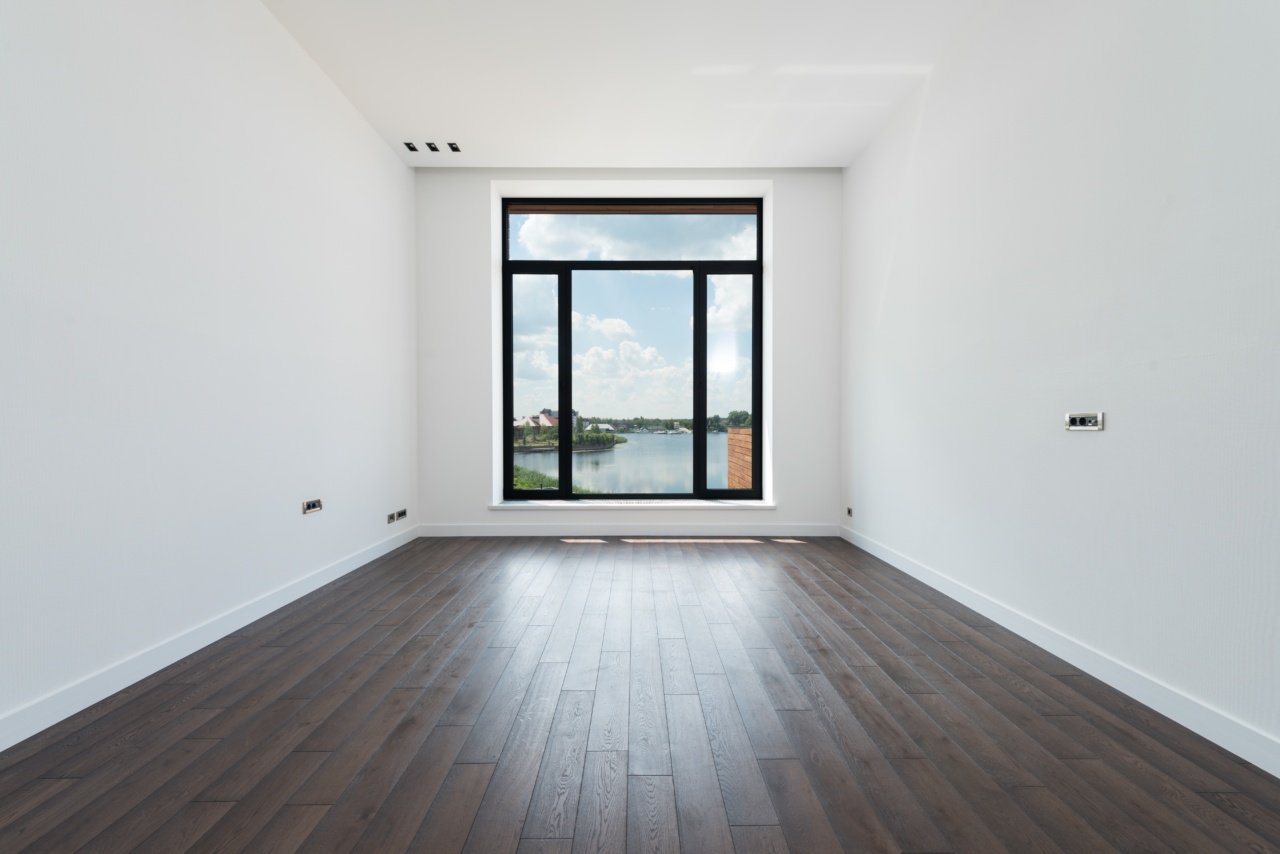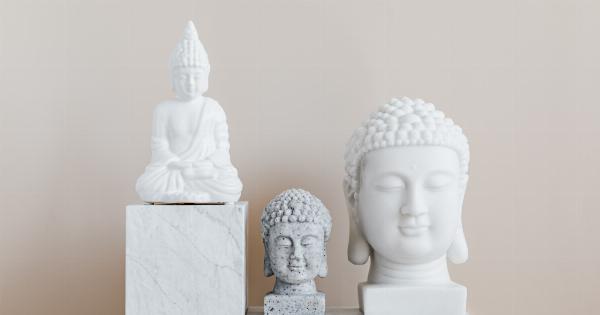The bedroom is the place where you spend a significant portion of your time, around 7-8 hours every day on an average.
A good night’s sleep is essential for overall well-being, and it all begins with an environment that’s conducive to rest and relaxation. With that in mind, here are 30 tips for creating a healthier bedroom space:.
1. Make your bed every day
A made bed makes the whole room look neater and cleaner, creating a sense of calm and orderliness.
2. Choose the right paint color
The color of your walls can have a significant impact on your mood and emotions. Light colors like pale blues, greens, and grays can help create a soothing and relaxing atmosphere.
3. Invest in natural materials
Mattresses made of organic latex, wool, and cotton are excellent choices as they are free from chemicals that can cause respiratory problems, skin irritation, and allergies.
Natural fibers like linen, silk, and cotton for bed linen and curtains also help improve the air quality of your room.
4. Avoid clutter
A messy and cluttered bedroom can increase anxiety levels and make it harder to relax. Keep surfaces like nightstands clean and decluttered, ensuring there’s plenty of room for your essentials like a lamp, water, and a book.
5. Optimize natural light
Open the curtains during the day to let in natural light, which has a positive effect on mood, energy levels, and productivity. In the evening, pull down blackout shades for a darker environment, which can help improve sleep quality.
6. Add some greenery
Plants are not only aesthetically pleasing but also help improve air quality. Indoor plants like snake plant, spider plant, and peace lily are excellent choices for the bedroom, as they can reduce pollutants and improve sleep by promoting relaxation.
7. Invest in high-quality linens
Bedsheets and pillowcases made of high-quality natural fibers like cotton, linen, and silk not only feel luxurious but are also breathable and improve airflow, keeping you cool and comfortable during sleep.
8. Keep it cool
A cooler room temperature, between 60-67°F, promotes better sleep by lowering core body temperature, inducing deeper and longer periods of rest. Invest in a good quality fan or air conditioner to stay cool during hot and humid summer months.
9. Use aromatherapy
The calming and soothing properties of essential oils like lavender, chamomile, and ylang-ylang can help reduce stress levels and promote relaxation. Use a diffuser or spray on your pillow or bedding to enhance the calming effect.
10. Declutter wardrobe
Clothes stacked haphazardly or spilling over the closet can make your room look cluttered and uninviting. Ensure that everything has its designated place, and stay on top of laundry to keep it under control.
11. Upgrade your pillows
Investing in a good quality pillow suited to your sleeping style can help reduce neck and shoulder pain, providing a comfortable and restful sleep. A good rule of thumb is to replace your pillow every two years to ensure proper support and hygiene.
12. Reduce noise levels
Exposure to noise pollution can cause hypertension, elevating the stress hormone cortisol, and disrupting sleep. Use earplugs to block out noise, or use techniques like white noise, natural sounds, or meditation to mask unwanted noise.
13. Keep it dark
A pitch-dark bedroom can help improve sleep by ensuring the body produces adequate amounts of melatonin, a hormone that regulates sleep.
Avoid using artificial lights from electronics, and invest in blackout shades to avoid unwanted light leakage into your room.
14. Use natural cleaning products
Harsh chemicals in cleaning products can cause respiratory problems, headaches, skin irritation, and allergies. Use eco-friendly and natural cleaning products to avoid exposure to harmful toxins, improving the air quality of your room.
15. Address pet allergies
Pets can bring joy and companionship to our lives, but if you’re allergic, it can make it harder to breathe comfortably at night.
Keep pets out of the bedroom to reduce exposure to allergens and dander, or invest in a high-quality air purifier to filter out impurities.
16. Keep your work away from your bedroom
Your bedroom should be a personal sanctuary, and not a place for work-related activities. Avoid using electronics, laptops, or paperwork in bed, as it can blur the boundaries between work and personal life, leading to anxiety and stress.
17. Choose the right bed frame
A sturdy and well-built bedframe is essential for safety, durability, and support.
Wooden frames or metal bed frames with the proper center support offer a comfortable and secure foundation, preventing sagging of the mattress and ensuring proper spine alignment.
18. Create a scent-free zone
Strong fragrances from perfumes, lotions, or scented candles can irritate the senses and disrupt sleep quality. Create a scent-free zone in your bedroom to eliminate any potentially irritating fragrances that may affect your sleep cycle.
19. Use comfortable and appropriate lighting
Harsh overhead lighting can cause eye strain, headaches, and disrupt sleep quality. Use warm, gentle lighting with dimmable switches for a peaceful and soothing atmosphere, ideal for reading or winding down before bedtime.
20. Use natural air purifiers
Natural air purifiers like activated carbon, beeswax candles, and Himalayan salt lamps can help remove impurities like dust, pollen, and smoke particles from the air, promoting clean and fresh air quality.
21. Use hypoallergenic materials
If you suffer from allergies or sensitivities, it’s best to use hypoallergenic materials like pillows, comforters, and blankets to avoid triggering allergic reactions, rashes, or respiratory problems.
22. Reduce electronic usage in the bedroom
The blue light emitted from electronic screens like smartphones, laptops, or tablets can inhibit the production of melatonin, disrupting the natural sleep cycle.
Keep electronics out of the bedroom, or use blue light blocking glasses to reduce the adverse effects of screen time.
23. Keep it smoke-free
Smoking indoors can be hazardous to your health, damaging lung function, and causing respiratory problems. Create a smoke-free environment to improve overall health and well-being and promote fresh and clean air quality in your bedroom.
24. Keep your bedroom as a sleeping area only
A bedroom should be used primarily for rest and relaxation, and not for other activities like work, eating, or entertainment.
Keeping it free from other distractions helps create a mentally clean and calming environment, promoting optimum sleep quality.
25. Invest in a comfortable mattress
A comfortable and supportive mattress is essential for a good night’s sleep. A mattress that’s too soft or too hard can cause back pains and disrupt the sleep cycle.
Invest in a quality mattress suitable for your sleeping style and upgrade it every 8-10 years for maximum comfort and support.
26. Keep it uncluttered
A clean and uncluttered bedroom provides a calming and inviting ambiance, promoting relaxation and reducing stress.
Keep surfaces like nightstands, dressers, and windowsills clear and tidy to reduce the visual distractions and promote a peaceful environment.
27. Reduce electromagnetic fields
Exposure to electromagnetic fields from electronics like cell phones, laptops, or Wi-Fi routers can interfere with the natural sleep cycle and cause headaches, irritability, and fatigue.
Keep electronics out of the bedroom, and switch off Wi-Fi during sleep hours to reduce exposure to EMFs.
28. Keep the temperature comfortable
A comfortable room temperature is essential for optimum sleep quality. Adjust the temperature according to your preferences, aiming for a temperature between 60-67 degrees Fahrenheit.
Layers like blankets or comforters can be added or removed as per your comfort.
29. Use a natural mattress protector
Mattress protectors made of natural materials like cotton, wool, or bamboo are a great option for ensuring bedding stays clean, dry, and hygienic.
They also provide an additional layer of comfort and breathability, promoting better circulation and airflow.
30. Let your bedroom breathe
A well-ventilated bedroom promotes clean and fresh airflow, reducing the risk of respiratory problems and allergies. Open the windows or use a ceiling fan to ensure proper ventilation, allowing your room to breathe and feel fresh.































